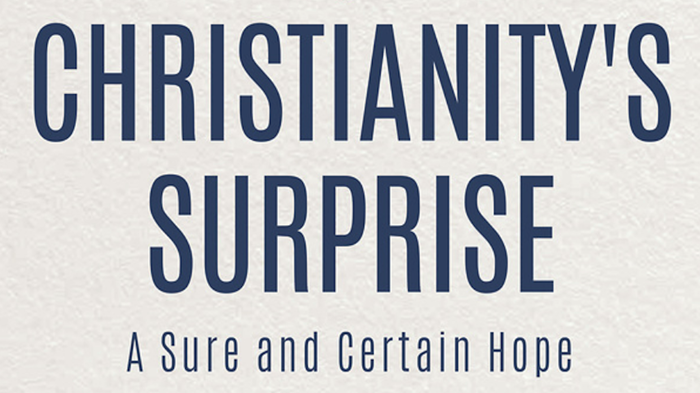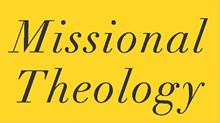America's Hypocrisy

American’s hypocrisy, according to C. Kavin Rowe, is not its partisanship or its divisiveness. In fact, America’s hypocrisy is Europe’s hypocrisy too. What is it? Read on as we cointue this series on Christianity’s Surprise: A Sure and Certain Hope.
In Rowe’s chapter on “The Human,” which follows his exceptional chapter on the story of everything, he details with clarity four dimensions of Christianity’s big surprise – a new view of what it means to be human. Many today are at a loss when it comes to defining “what is human?” The loss is common in history.
When you think about it, it is a rather strange thing that we wonder what it is to be human. … But, instead, at whatever moment the human animal first experienced self-consciousness, we became mysteries to ourselves. And we have been reflecting on the human mystery – our self-mystery – ever since. ... We are mysteries because we cannot help being so after the fafl and until we are given the story that tells us who and what we are. Who and what we are, that is, must be re-vealed to us from beyond what we can ourselves come up with. In other words, humanity’s self-understanding is a gift.
But Christianity stepped into the Roman world with something new, profoundly new, when it offered to the world a Christian understanding of humans.
Here are his four major points:
Jesus of Nazareth is the Human
Image of God from Gen 1:26-27 led to a capturing of image of God in Israel so that the Jewish people become the image of God. Christianity takes this one step further: yes, Israel but only in the One Israelite, Jesus.
He is not God’s image in the sense of a reflection that mirrors but does not capture the fullness of the real thing. He is instead the way God images himself in the history of creation and elec-tion. ‘Ihe total history of God’s image, that is, has been aimed at this:God images himself fully and completely in Jesus of Nazareth. Jesus is the Imago Dei.
This leads to learning to see Adam as Israel and Israel as Adam, and then seeing Jesus as the New Adam and the New Israel, and then to seeing Adam and Israel as Christ. That is, both a forward and a backward reading.
Humans are “Christ”
Here Rowe turns to Jesus good Samaritan parable and the parable of the sheep and goats, and this leads to seeing all humans as Image bearers as being Christ among us. There is a certain equivocation here – yes, if Christ is image of God and if we are image of God, then we are Christs. But there is a distinction here with a big difference, too.
Which is why Rowe goes to his third point about humans in a Christian surprise.
The human is one who needs to repent, be forgiven, and be transformed.
There is something out of sync about humans: they are and they are not what they are made to be.
They are Adam (and Eve) and not yet Adam (and Eve). Humans are Image of God but in need of repair and transformation.
The ethic of grace, forgiveness and reconciliation is a mark of Christianity.
Humans are those who know the final word is not death but life – and so live in hope.
The last word of God in Christ is not death but resurrection.
Good Friday is not seen for what it is until Easter and Easter casts its bright light back over all of the history of death.
Death is the penultimate word.
Life is the ulitmate word.
This is the Christian view of humans and of human dignity. All four are needed to comprehend the Christian ethic. The ethic without the Christianity doesn’t exist.
There is a “moral attack” on this Christianity and its view of the human – the two can’t be separated. If you want the latter without the former you destroy both.
The whole project was a flop: retaining Christian life and a vision of what it means to be human without the Christianity is impossible.
America’s hypocrisy is its naive belief that it can have the Christian ethics of human dignity without Jesus as the image of God, without the resurrection witnessing to the hope of life over death, and without indwelling that image of God as the seedbed for the ethic of human dignity.
If there’s no God, no resurrection of Jesus Christ, and therefore no human in the Christian sense, then there is no reason to treat other people as Christianity has argued you should. ‘T he moralizers are fooling themselves and, truth be told, simpiy too cowardly to face a world without their mor-als, a world. inwhich the human is only what it makes of and for itself-which is, of course, a world in which the cleverest and strongest among us always win. Nihilism, that is, will easily win, every time.
Friends, I urge you to buy this book and savor it.
Nothing is more indicative of a society unmoored from its Christian heritage than a culture that cannot and will not forgive. The mentality of a lack of grace and unforgiveness found today in what is often called the cancel culture, an expression I first heard from President Obama, and a cancel culture is unmoored from Christianity’s core belief in God’s grace for those who do not deserve it.
I recently read Rémi Brague’s new The Kingdom of Man, and his big thesis is that humans moved from seeing themselves in a cosmos, and then saw themselves in relation to God (much of it a Christian theory exposed here by Rowe), but in modernity’s project, humans decided to master nature – not God’s nature, not God’s calling to humans as Image of God – and nature has turned the favor by mastering humans.
Nihilism all the way down.
Rowe’s right. Europeans and Americans are hypocrites for thinking they can practice a Christian ethic without Christianity. The liberal Western vision will be shown to be am emperor with no clothes.
Jesus Creed is a part of CT's
Blog Forum. Support the work of CT.
Subscribe and get one year free.
The views of the blogger do not necessarily reflect those of Christianity Today.




















